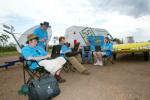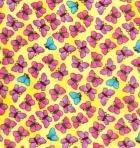 Watch the trailer for the new movie "An Inconvenient Truth," go to the movie, and decide for yourself if you want to make a commitment to addressing global warming. There are many ways to save the planet. Check out climatecrisis.net. Treehugger.com. EPA. Wikipedia on global warming. Global Warming.net. Watch global warming. New Scientist on climate change. Georgia Tech studies up.
Watch the trailer for the new movie "An Inconvenient Truth," go to the movie, and decide for yourself if you want to make a commitment to addressing global warming. There are many ways to save the planet. Check out climatecrisis.net. Treehugger.com. EPA. Wikipedia on global warming. Global Warming.net. Watch global warming. New Scientist on climate change. Georgia Tech studies up.
Saturday, May 27, 2006
Global warming getting attention
 Watch the trailer for the new movie "An Inconvenient Truth," go to the movie, and decide for yourself if you want to make a commitment to addressing global warming. There are many ways to save the planet. Check out climatecrisis.net. Treehugger.com. EPA. Wikipedia on global warming. Global Warming.net. Watch global warming. New Scientist on climate change. Georgia Tech studies up.
Watch the trailer for the new movie "An Inconvenient Truth," go to the movie, and decide for yourself if you want to make a commitment to addressing global warming. There are many ways to save the planet. Check out climatecrisis.net. Treehugger.com. EPA. Wikipedia on global warming. Global Warming.net. Watch global warming. New Scientist on climate change. Georgia Tech studies up.
Save the Internet: a bill for Network Neutrality
 Today's news: A bipartisan majority on the House Judiciary Committee passed the "Internet Freedom and Nondiscrimination Act" - a good bill that would protect Network Neutrality and prohibit large phone and cable companies from turning the Internet into their private domain.
Today's news: A bipartisan majority on the House Judiciary Committee passed the "Internet Freedom and Nondiscrimination Act" - a good bill that would protect Network Neutrality and prohibit large phone and cable companies from turning the Internet into their private domain.Yesterday's vote is a milestone in our campaign. It would have been unthinkable just four weeks ago - when we lost a vote on Net Neutrality in the House Energy and Commerce Committee.
In the weeks since that first vote, we have ignited a prairie fire across America. And Washington is beginning to feel the heat:
More than 700 groups from all 50 states are now a part of the SavetheInternet.com Coalition - a diverse list that includes MoveOn.org, the Christian Coalition, the Service Employees International Union (SEIU), Consumers Union and the American Library Association A-list musicians such as REM, Moby, The Roots and the Dixie Chicks have joined the coalition with many more to be announced soon.
Major U.S. newspapers have written editorials supporting our position. More than 5,000 bloggers have linked to the SavetheInternet.com Web site and blog - urging their readers to take action on this issue. And yesterday, the Coalition's petition drive surpassed 750,000 signatures. With little money and through the efforts of many, we have turned momentum against a handful of phone and cable giants that are spending untold millions of dollars to squash Internet freedom. But there is more work to do.
The full House will take up the bipartisan Judiciary bill in June. The Senate is also considering legislation that currently fails to protect Net Neutrality, though a bipartisan group of Senators are lining up behind an excellent bipartisan bill sponsored by Senators Olympia Snowe (R-Maine) and Byron Dorgan (D-North Dakota).
Stay tuned. Also read more on Wired - for an interesting story.
Thursday, May 25, 2006
MySpace meets Al Gore
 According to Online Media Daily, former Vice President Al Gore and Paramount Classics today begin a broad partnership with MySpace to promote their climate change documentary, "An Inconvenient Truth."
According to Online Media Daily, former Vice President Al Gore and Paramount Classics today begin a broad partnership with MySpace to promote their climate change documentary, "An Inconvenient Truth.""MySpace has a unique ability to mobilize its community around an urgent cause," Al Gore says.
MySpace's campaign for "An Inconvenient Truth" includes a custom-designed site where the community's more than 70 million registered members can meet and exchange ideas. Among other features, the page offers a "personal environmental impact calculator" for users to assess their personal contribution to global warming. The site also presents related facts and tips for reducing carbon emissions and living "green."
Wow - a fantastic use of MySpace!!
Wednesday, May 24, 2006
Points of light: gender and gait
 Sometimes I like to comment on good writing in public relations for science, and this press release from Salk Institute captures my interest. Plus, the topic is intriguing and will make you think about your impressions of the gait of just about everyone you know!
Sometimes I like to comment on good writing in public relations for science, and this press release from Salk Institute captures my interest. Plus, the topic is intriguing and will make you think about your impressions of the gait of just about everyone you know!It doesn't take John Wayne's deliberate, pigeon-toed swagger or Marilyn Monroe's famously wiggly sway to judge a person's gender based on the way they move. People are astonishingly accurate when asked to judge the gender of walking human figures, even when they are represented by 15 small dots of light attached to major joints of the body. And not only that, when human observers watched the walking motion of a male so-called "point light walker," they were more sensitive to the female attributes when watching the next figure in the sequence. This suggests that the human brain relies on specialized neurons that tell gender based on gait, report researchers at the Salk Institute for Biological Studies in the May 21 advance online edition of Nature Neuroscience.
Read more on Eurekalert.
Monday, May 22, 2006
Scientists' findings: levees during Katrina
Following an eight-month study of the New Orleans levee system and its performance during Hurricane Katrina, a 30-person team of researchers led by Raymond Seed and Robert Bea of the University of California, Berkeley, released a near-complete draft of their findings today in a "town hall" meeting in that Gulf Coast city.
Seed received two National Science Foundation grants to collect perishable data and to conduct an independent field investigation of the performance of the New Orleans levee systems with the intent the findings would prove vital for gauging the performance of levee systems distributed across the United States.
The levee study is one of more than 100 NSF supported in response to Hurricanes Katrina and Rita. For decades, the agency has supported field investigations following all manner of disasters, allowing researchers to travel the world to collect perishable data as soon as possible after an event. Read more.
Seed received two National Science Foundation grants to collect perishable data and to conduct an independent field investigation of the performance of the New Orleans levee systems with the intent the findings would prove vital for gauging the performance of levee systems distributed across the United States.
The levee study is one of more than 100 NSF supported in response to Hurricanes Katrina and Rita. For decades, the agency has supported field investigations following all manner of disasters, allowing researchers to travel the world to collect perishable data as soon as possible after an event. Read more.
Imagine whales on land - what once was
Researchers have revealed the genetic basis behind one of the best-documented examples of evolutionary change in the fossil record: how whales lost their hind limbs. Writing in this week's Proceedings of the National Academy of Sciences, scientists report that ancient whales - four-footed land animals not unlike large modern dogs - evolved into graceful, streamlined swimmers through a series of small genetic changes during the whales' embryonic development.
A gene called "Sonic Hedgehog," named by a creative scientist, was in effect between 41 million and 50 million years ago when whales' hind limbs shrank greatly as the former land animals began a return to the sea. But their legs showed no change in the basic arrangement and number of bones, which proved that Sonic Hedgehog was in effect. Read more great science findings at the National Science Foundation.
A gene called "Sonic Hedgehog," named by a creative scientist, was in effect between 41 million and 50 million years ago when whales' hind limbs shrank greatly as the former land animals began a return to the sea. But their legs showed no change in the basic arrangement and number of bones, which proved that Sonic Hedgehog was in effect. Read more great science findings at the National Science Foundation.
Senate bill aimed to protect Internet
 Thanks goodness for the Snowe-Dorgan Bill, says Seana Mulcahy. It represents the "Internet Freedom Preservation Act of 2006.
Thanks goodness for the Snowe-Dorgan Bill, says Seana Mulcahy. It represents the "Internet Freedom Preservation Act of 2006.This bipartisan bill was introduced in the Senate. Byron Dorgan (D-N.D.), Olympia Snowe (R-Maine). and Daniel Inouye (D-Hawaii). It aims to protect Network Neutrality. The bill defines the obligations of broadband providers in supplying the link between content providers and consumers. Read more on OnlineSpin.
Friday, May 12, 2006
Save the Internet campaign grows
 You knew all the freedoms we have enjoyed on the Internet could be threatened by big business eventually - well, that day is here.
You knew all the freedoms we have enjoyed on the Internet could be threatened by big business eventually - well, that day is here.Congress is now pushing a law that would end the free and open Internet as we know it, according to the team of people across the nation working to "Save the Internet." The SavetheInternet.com Coalition now has 524 member organizations, 637,386 petition signatures to Congress, 3,251 blog links, and 5,634 MySpace friends. Read the the Coalition's blogs.
Major national Internet providers are lobbying Congress hard to gut Network Neutrality, the Internet's First Amendment, and the key to Internet freedom. Net Neutrality prevents major providers from choosing which websites open most easily for you based on which site pays the companies more. We do not want one company to have to outbid another for the right to work more properly on your computer.
Many members of Congress take campaign contributions from these companies, and they don't think the regualr people are paying attention to this issue. Join with others to ensure Internet neutrality - you can sign a petition today.
Thursday, May 11, 2006
Llamas, camels, and caffeine
 I love this story for several reasons - one because it is so visual and interesting, and also because it is hard to imagine trying to avoid caffeine. But here's a snapshot from a press release on Eurekalert:
I love this story for several reasons - one because it is so visual and interesting, and also because it is hard to imagine trying to avoid caffeine. But here's a snapshot from a press release on Eurekalert:Three llamas and two camels have provided a way to tell whether your waiter swapped regular coffee for decaf in your after-dinner cup. Using the heat-resistant antibodies these camels and llamas make, researchers at Washington University School of Medicine in St. Louis are developing a quick test for caffeine that works even with hot beverages.
The researchers plan to adapt their technology to a simple test ("dipstick") that can be used to check for caffeine in a variety of drinks. Their research is in the journal Analytical Chemistry.
"We believe our test would be the first consumer test for caffeine and would be beneficial for anyone wishing to avoid caffeine for health or personal reasons," says senior author Jack H. Ladenson.
Tuesday, May 09, 2006
Gore: save our planet
 I have to say that I respect Al Gore so much - and here is the latest in his effort on the global warming front:
I have to say that I respect Al Gore so much - and here is the latest in his effort on the global warming front:He is helping to promote the documentary "An Inconvenient Truth." The film focuses on Gore's efforts to educate the public about global warming, an issue the former presidential candidate has spoken out on for years. The film shows photos of glaciers retreating and a host of charts and statistics chronicling the rise of water levels, worldwide temperatures and carbon dioxide levels, all symptoms of gradual warming of the earth, according to Gore.
Read the USA Today story.
Butterflies continue to face challenges
 This article is not saying anything about global warming, but my intel says that California's weather is directly related to global warming.
This article is not saying anything about global warming, but my intel says that California's weather is directly related to global warming.States a press release from UC Davis, "Cold, wet conditions early in the year mean that 2006 is shaping up as the worst year for California's butterflies in almost four decades, according to Art Shapiro, professor of evolution and ecology at UC Davis.
That's a turnaround from last spring, when millions of painted lady butterflies migrated through the Central Valley. But other species have seen steep declines in recent years and could disappear from the region altogether.
'It has been the worst spring for butterflies of my 35 in California,' Shapiro said. 'There will probably be long-term repercussions, especially for species already in serious decline.'
Shapiro said that at most of his study sites, he is seeing half or less than half the number of species present at this time in an average year, and far fewer individual butterflies than usual. For example, at Gates Canyon near Vacaville he counted 10 species and 43 individuals on April 18, 2006. At the same site on April 19, 2005, he counted 21 species and 378 butterflies.
This winter's weather conditions may have a lot to do with the drop in numbers. The early winter was mild, with not enough cold to end the winter dormancy or 'diapause' of most butterflies, so they did not emerge to take advantage of early warm weather in February. Then March turned cold and wet, wiping out the breeding of species that had emerged."
Tuesday, May 02, 2006
Internet neutrality issues surface
 A big issue on the horizon and getting a lot of attention is the concern for Internet neutrality or net neutrality. To understand the definition and the history and current congressional action, visit the Wikipedia.
A big issue on the horizon and getting a lot of attention is the concern for Internet neutrality or net neutrality. To understand the definition and the history and current congressional action, visit the Wikipedia.States the Wikipedia entry on Net Neutrality: "By late 2005, network neutrality provisions were included in several Congressional draft bills, as a part of ongoing proposals to reform the Telecommunications Act of 1996. They would generally require internet providers to allow consumers access to any application, content, or service. However, important exceptions allow providers to discriminate for security purposes, or to offer specialized services like "broadband video" service.
On March 30, 2006 press release Rep. Fred Upton (Mich.) chaired a subcommittee hearing for a mark up of the Communications Opportunity, Promotion, and Efficiency Act of 2006 scheduled for April. Read more about the action in Congress in Business Week: "In a vote of 34 to 22, the House Committee on Energy & Commerce rejected an amendment to a sweeping telecommunications law, the Communications, Promotion, & Enhancement Act of 2006. The proposal, by Rep. Ed Markey (D-Mass.), would have given the Federal Communications Commission the power to prohibit discrimination when it comes to sending traffic over the Internet. In effect, the amendment would block the creation of a multilane "information highway," where network operators could give preference to their own content, or ensure speedier delivery to content providers that pay extra fees."
In April 2006 a large coalition of bi-partisan blogs and independent groups created Save The Internet, a fund-raising and political-action venue for endorsing the concepts of network neutrality. Within a week of its establishment, over 250 thousand signatures were delivered to Congress in favor of enshrining net neutrality as law."
Helping people understand this issue is going to take some time and effort - hope you will join the effort by joining Save The Internet.
Subscribe to:
Comments (Atom)

